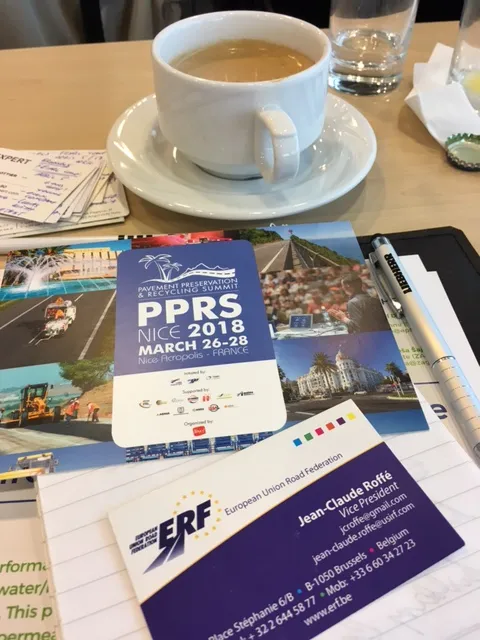
Maintenance, Modernisation, Adaptation of Roads and Streets for Tomorrow’s Mobility – these are the key themes for the upcoming Pavement Preservation and Recycling Summit (PPRS) in Nice, France, March 26-28 next year. Meeting the mobility challenges is more essential than ever in a rapidly changing global context.
Speakers at the event, to take place at the Nice Acropolis, will include Peter Schmitz (Germany), Shigeru Kikukawa (Japan) and David Winter (US).
Spain is a reference point with respect to the use of European funds dedicated to the improvement of road infrastructure, notes Jacobo Díaz Pineda, director-general of Asociacion Espanola de la Carretera – the Spanish road asssociation. Nevertheless, the main challenges today are the optimisation of road maintenance, the modernisation and the adaptation of the road network to tomorrow’s mobility needs.
“This will be a unique opportunity for experts (industry, administrations, researchers, academics…) to present their latest developments and get better acquainted with good practices from like-minded professionals around the globe,” he said.
The opening session on day one will set the stage for the summit: Taking action to ensure a sustainable road transport system. Following sessions will cover the role of governments and local authorities in creating a sustainable road infrastructure. What do organisational models look like for maintaining sustainable roads of the future? And who will pay for them?
Day two will kick off with a review of road maintenance finance models and move on to the practical - how to handle structural failure at all levels. The importance of communication between stakeholders – an often-overlooked topic – will be considered as a way to get everybody involved in the design sustainable road infrastructure. Also to be considered is how to operate a road most efficiently.
Surface technologies will be covered at the start of day three and move on to national road safety policies. Technical visits will follow the closing of the main summit.
The European Union Road Federation (ERF) was one of the major supporters of the previous PPRS event, in Paris in 2015. That first ever PPRS attracted more than 1,000 participants, represented an essential milestone for the road community in Europe and beyond.
Then, in October 2016, in line with the PPRS 2015, the ERF organised in Leeds, UK, the 1st European Road Infrastructure Congress (ERIC). This congress gave participants the opportunity to explore three major themes: road safety, delivery of the road infrastructure and adaptation of the roads to technological changes and innovations.
Both events came to similar conclusions: in this period of massive challenges related to the future mobility models, the road infrastructure today more than ever must be prepared to tackle them, be proactive and propose solutions for making our roads ready for the future and provide road users with the public service they expect by planning the infrastructure for the people.
Don’t miss out. Make it a date to be in Nice March 26-28
For further information, visit: %$Linker:







